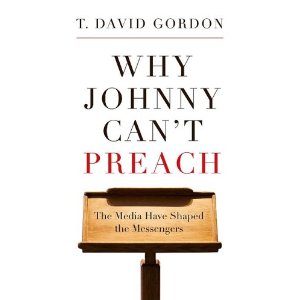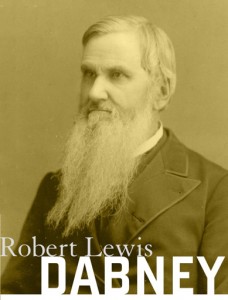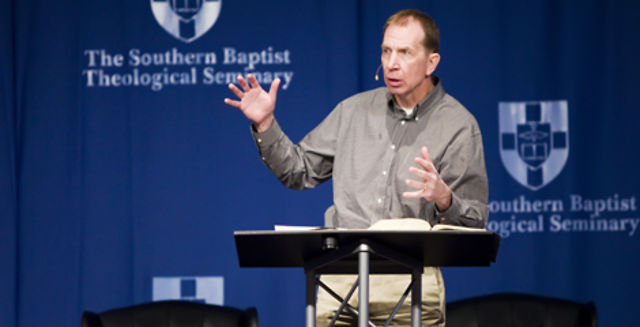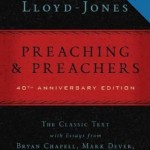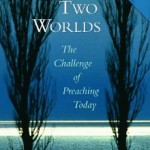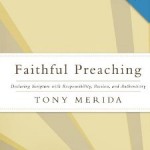 Each week I try to write a “Pastoral Postcard,” a post that aims to encourage pastors in the work of ministry. I take one verse of Scripture and apply it to the blessings and afflictions every gospel minister experiences. The postcards originate from a time when I was preaching through 1 Timothy while reading Thomas Boston’s The Art of Man-Fishing. As a young pastor myself, I tried to channel my inner Boston and write short-ish notes to encourage my labor. Hopefully they can be some encouragement to you.
Each week I try to write a “Pastoral Postcard,” a post that aims to encourage pastors in the work of ministry. I take one verse of Scripture and apply it to the blessings and afflictions every gospel minister experiences. The postcards originate from a time when I was preaching through 1 Timothy while reading Thomas Boston’s The Art of Man-Fishing. As a young pastor myself, I tried to channel my inner Boston and write short-ish notes to encourage my labor. Hopefully they can be some encouragement to you.
“Not many of you should become teachers, my brothers, for you know that we who teach will be judged with greater strictness.” – James 3:1
Pastor, execute your ministry with a sense of awesomeness – a tone of holy dread.
The holy dread of ministry is found in the warning, “Not many of you should become teachers,” for you will be judged with greater strictness. Your words and ways are on display for all to see and will be the fragrance of life or stench of death. You dare not be found a peddler of God’s word, but a faithful trader in eternal things. The apostle reveals his understanding of your awesome calling when he asked, “Who is sufficient for these things?” To answer in a sentence: the pastor soaked with Spirit-wrought sobriety and sincerity.
A SOBER PASTOR
Sobriety in ministry fertilizes holy dread. Sobriety is identified by her children called Earnestness and Reverence. God made you a steward of His Word so that you would publish abroad the good news of His kingdom; what earnestness this calling demands! The sin of your heart and schemes of your enemy will tempt you to complacency in ministry. The Serpent knows that idleness might just be more effective in harming your congregation than disqualifying sin. Idleness fuels lifeless preaching, disconnected oversight, and spiritual isolation. If the Serpent succeeds in rendering you idle he will then attack your congregation and/or elder body to unwise extensions of grace. They will let your sin go unchecked longer than it should and even if they call you to account he will tempt them to keep you in your office. Should he succeed in both ends he has just rendered the congregation faithless and fruitless. The gates of hell snicker at idle pastors and, by extension, idle congregations.
Yet, the gates of hell crumble in terror before a man of God distinguished by the peculiar grace of reverence. Reverence, fear and awe at God’s majesty, slays the sin of complacency and promotes sobriety. The age in which you live celebrates levity and frivolity in the pulpit, while your God celebrates men who tremble at His Word. Many congregations come to corporate worship hoping for a chance to laugh rather than a chance to repent. The Serpent will use the atmosphere of the age to tempt you to be an entertainer more than a gospel minister, but you must stand your ground. You are standing in the gap of the ages calling people to repent of their sin and believe in their Savior. Such proclamation cannot be done with flippant shallowness, it must be done with sober reverence.
Understand that the Serpent will tempt you away from reverence by presenting it as unapproachable austerity. But no, this is deception and confusion. Your God reigns in awesome splendor that strikes men with fear, but compelling fear. Awesomeness compels nearness; holy dread fuels sobriety.
A SINCERE PASTOR
Sincerity is a friend to the fear of God and is thus a friend to holy dread. No one, not even you, can stand in front of the Glorious God covered in deceptive masks. He knows your prayers before they are offered, your words before they are spoken, your actions before they appear; You cannot hide from Him and His Spirit searches you inner being. Do you see how this calls for sincerity? This coming week you will stand behind the sacred desk and the awesomeness of God demands sincere proclamation. The Serpent will tempt you to subtle deception in preaching; he will scheme for you to soften the reality of sin, the greatness of Christ, and the demands of discipleship. Sincerity slays soft preaching and prepares a feast that your people may not want, but they still need.
Pastoral ministry runs on the twin rails of patient plodding and pleading, and this long-suffering needs sincerity. The oracles of God you carry into the pulpit and around town each week are blessed burdens. The Serpent intends to burn you with these burdens by tempting you to bear them alone. Yet, sincerity drives out this deception by linking arms with a band of brothers to join you in plodding and pleading. After all, you are not the only one that will give an account for those God entrusted to you. Holy dread promotes and enables sincerity.
Finally, remind yourself often that this ministry is not be played at nor trifled with. Your Lord will not suffer His sheep to be shepherded with buffoonery; rather, His glorious majesty assume a disposition of sobriety and sincerity. Pastor your people with holy dread.



